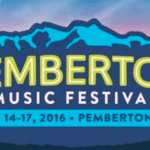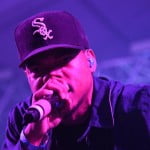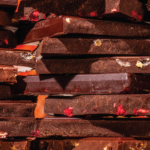
“When people think of folk music these days they think only of singer-songwriters,” says Smith. This, he explains, is too narrow a definition; to him, folk is “the historic music of the largely rural working class.” He programs the festival, which this year runs April 8–10 at St. Ann’s Church in Brooklyn Heights, accordingly: The lineup includes jazz, blues, country, jug bands, ragtime, and traditional music from other countries, including Mexico and Ethiopia. Jerron “Blind Boy” Paxton, a young musician from Los Angeles who models himself on the blues giants of the 1920s, will take the stage on Saturday evening. Gaida, a New York–based Syrian vocalist, will perform her mournful traditional songs with her band earlier that afternoon.
Musical performances anchor the weekend, with workshops and film screenings providing further context for the music. As is festival tradition, there will also be a “banjo toss,” in which participants compete to throw the instrument as far as they can into the Gowanus Canal. But this year, for the first time, the festival will focus explicitly on American folk music’s connections to leftist politics and social justice. “The whole world is sort of erupting,” Smith explains. “There are so many crises unfolding, it seemed sort of disingenuous to not address that in some way.” His answer to the call is a performance featuring new “topical songs,” Smith’s way of describing what’s usually called protest music, on the Saturday of the festival.
To ground these songs in some of the political music that preceded them, the festival welcomes 82-year-old civil rights activist Mattie Jones, of Louisville, Kentucky, who marched with Dr. Martin Luther King Jr. and was arrested dozens of times for civil disobedience. Smith invited her to speak at the festival after seeing a video of her singing old freedom songs, which she’ll be teaching in a workshop on Sunday, following an interview with Smith.
UPCOMING EVENTS
- Mike Zito & the Wheels
TICKETSTue., Apr. 5, 8:30pm
- Phil Cook
TICKETSWed., Apr. 6, 6:30pm
- Heather Nova
TICKETSWed., Apr. 6, 7:00pm
- Touch of Grey (Tribute To the Grateful Dead)
TICKETSWed., Apr. 6, 7:00pm
“I’m not a professional soloist,” Jones laughs when reached by phone at her home in Louisville. “But I sing from my heart of some of the struggles that I have been involved in.” Her songs are traditional African-American Baptist spirituals that civil rights activists brought out of church and into the streets for marches and protests. “Those songs gave us that extra shot, if you will, to say, ‘Hey, I’ve got to keep on going, I’ve got to keep on standing up,’ ” she says. “[They] lifted our spirits.”
Unlike some of her contemporaries, though, Jones does not believe the best days of activism are behind us, and she’s heartened by the young activists working today in movements like Black Lives Matter. “At one time, I felt like racism was not a word in [younger generations’] vocabularies,” she says. “What happened in Ferguson, Missouri — that was an awakening, that was a call. And those young folks, all over the country, are beginning to rise up.”
Today, young activists are choosing as their anthems not traditional spirituals but songs by artists such as Kendrick Lamar. Wayne Marshall, an ethnomusicologist and assistant professor of music history at Berklee College of Music, says there are clear parallels between folk and rap. “If we’re talking about [the] process — collective recitation, reshaping, recirculation of songs and lyrics — then yes, of course rap is a modern form of folk music,” he says. Marshall also sees a continuity between the progressive themes of traditional folk music and hip-hop today. “Kendrick Lamar’s ‘Alright,’ like many a Pete Seeger anthem, has become not just a general expressive resource for everyday folk but an actual protest chant,” he says, referencing the multiple instances in which activists have sung the chorus at marches and actions.
While Smith dislikes radio-friendly pop, he hears this same spirit of folk music in rappers who address struggle. What’s important to him isn’t the form the music takes so much as the feeling it provides. “There’s so much in the world today that to me is sort of nonhuman, but when I hear this grassroots music, that speaks to me on a very personal human level,” he says. “I think the place where that exists most strongly today is in rap. It’s so literary, it’s so verbal. You can really say a lot.”
Jones hopes that her freedom songs will help the young people following in her footsteps understand — and learn from — the trials and triumphs of her generation. “I can’t march like I used to,” she says, “but now that age is upon me, God has left me with a big old mouth.”
[“source-Villagevoice”]











